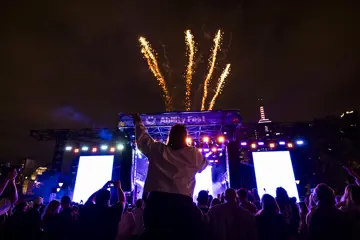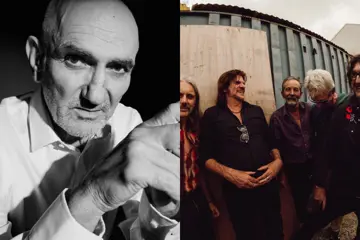CONTENT WARNING: This article contains a discussion of sexual assault. If you or someone you know is impacted by sexual assault, domestic or family violence, call 1800RESPECT on 1800 737 732 or visit 1800RESPECT.org.au.
A new report published by Monash University, Examining Sexual Violence in the Music City of Greater Melbourne, has found that 60 per cent of participants surveyed feel unsafe in the city’s music venues.
Out of 126 respondents – mostly white, cisgender women aged between 25 and 44 – 60% said they feel unsafe in music venues in Melbourne’s CBD and inner-city areas like St Kilda, Collingwood, Brunswick and Flemington.
In addition to that admission, 80% of participants never reported incidents of sexual harassment or groping, and that’s with the report finding that sexual violence has reached epidemic proportions and has become normalised in clubs and venues that play rock music.
Don't miss a beat with our FREE daily newsletter
One participant responded, “I would like to call it out now… Some people don’t even realise they were sexually violent. And in my experience, it’s mostly from other musicians.”
As a result of the Examining Sexual Violence results, the report urges five recommendations to address this societal issue, including more effective training and education workshops for security and venue staff to identify sexual violence and respond to it, installing more effective policies to address sexual violence, starting a phone counselling hotline service, improving gender and ethnic diversity in music leadership positions, and calling for the exclusion of government grants towards music festivals, radio stations and record labels if they don’t champion inclusivity and equity.
The report further recommends more research to go into gaps in knowledge surrounding sexual violence by listening to and amplifying more marginalised voices, a move beyond binary opposites, adopting an intersectional, holistic approach; study reports that link gig participation to street harassment, examining issues of safety on public transport and urban spaces, and assess the effectiveness of Mayors in managing night-time economies in Australia’s major cities.
Lead Researcher Dr Andrea Baker said about the report, “The report highlights the lack of awareness among music workers and audiences about the existing services and spaces designed to support them, and those willing to speak out came from a position of privilege, rather than marginalisation.”
Baker added, “Sexual violence is rife in our music city. It disempowers music workers, deters others from working in it, and audiences to participate in our vibrant music scenes.”















